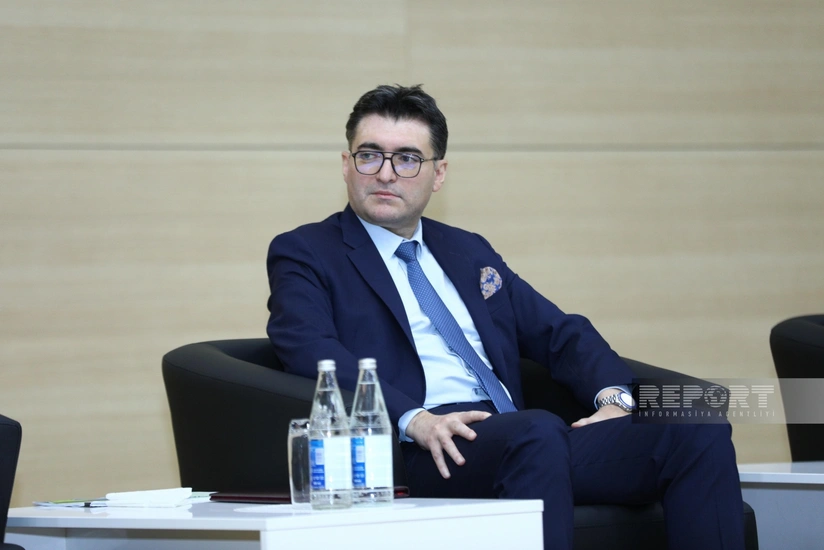Orkhan Zeynalov: 'Green Corridor' will create new investment opportunities for region
- 22 September, 2025
- 14:52

The Caspian–Black Sea–Europe Green Energy Corridor will increase the region's competitiveness and create new investment opportunities, Azerbaijan's Deputy Minister of Energy Orkhan Zeynalov said during the first Azerbaijan International Investment Forum (AIIF 2025).
According to Report, the deputy minister recalled that work is currently underway with partners on the intersystem line Central Asia–Azerbaijan–Europe (a green energy corridor connecting Kazakhstan and Uzbekistan with Azerbaijan across the Caspian Sea and extending to Europe).
"This route can become the missing link in the Middle Corridor, which connects East and West, North and South. It brings Central Asia and China closer to Europe and the Middle East, creating new business opportunities. This opens up additional investment prospects: investors assess the region as a whole and then individual countries. At the same time, it enhances the region's competitiveness in attracting foreign direct investment and other capital, benefiting all regional countries," Zeynalov noted.
He recalled that in December 2022, Azerbaijan, Georgia, Romania, and Hungary signed a strategic partnership agreement on constructing the Black Sea Energy submarine power cable. In 2023, Bulgaria announced its intention to join the project, and its Council of Ministers approved the participation of Bulgarian Energy Holding EAD in the joint venture.
In May 2024, the energy operators of Azerbaijan, Romania, Georgia, and Hungary - AzerEnerji JSC, Transelectrica SA, the Georgian State Electrosystem, and MVM - signed a memorandum on establishing a joint venture, and in September an agreement was signed to set up the Green Energy Corridor (GECO) company.
At the initial stage, the cable will be designed to export 4 GW of green energy. Construction is estimated at €3.5 billion and will take 3–4 years. The European Commission plans to allocate €2.3 billion for the project.
